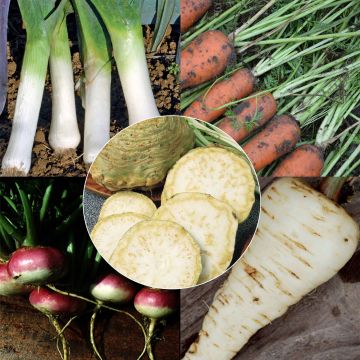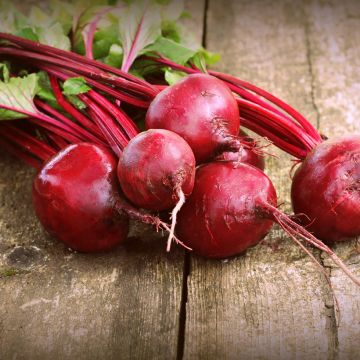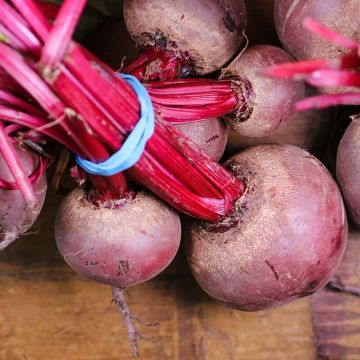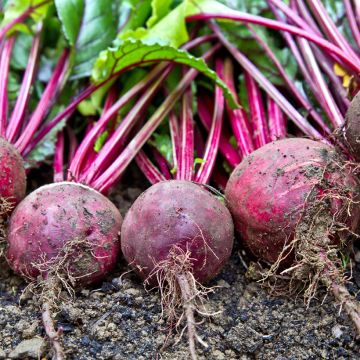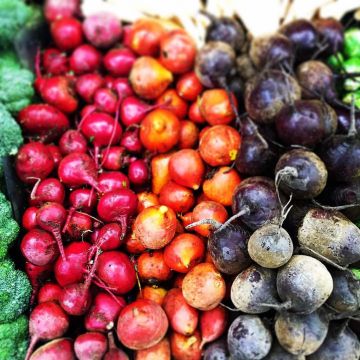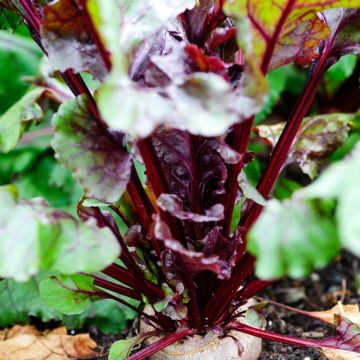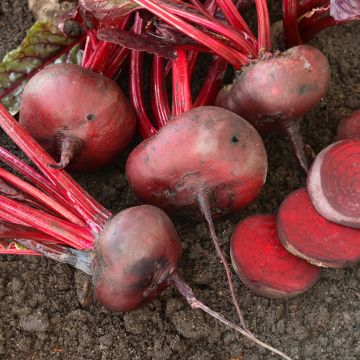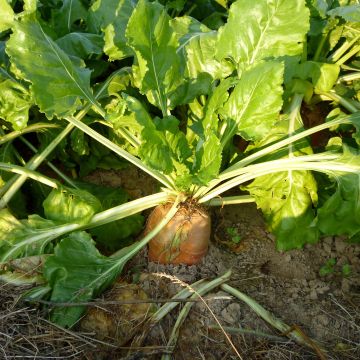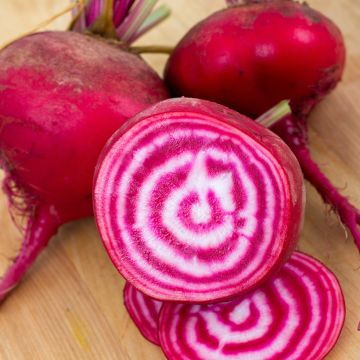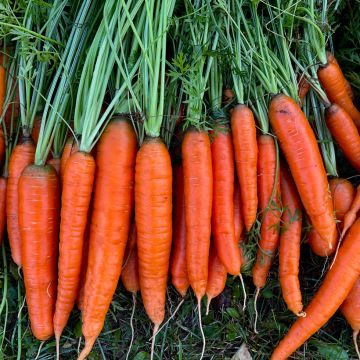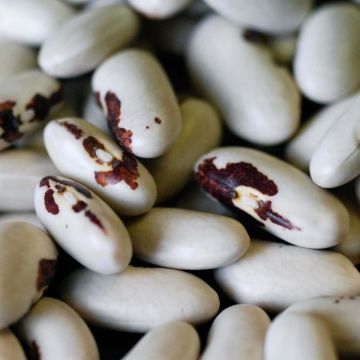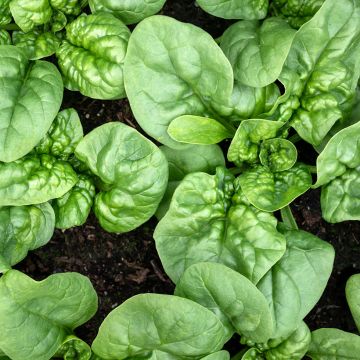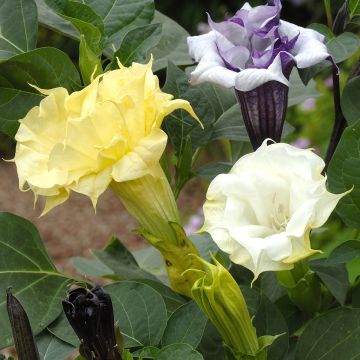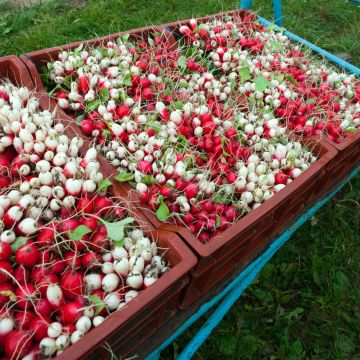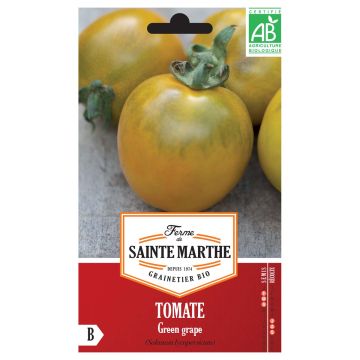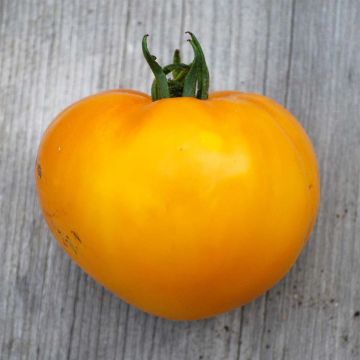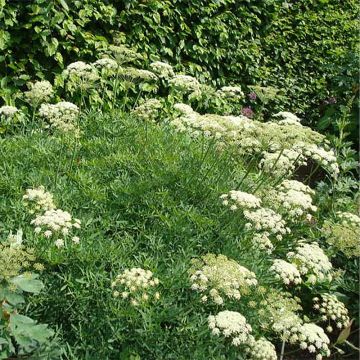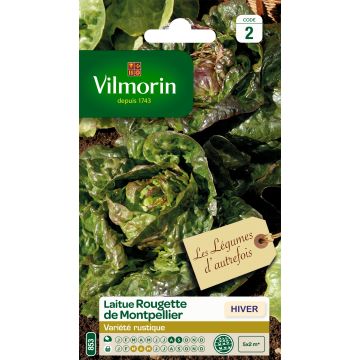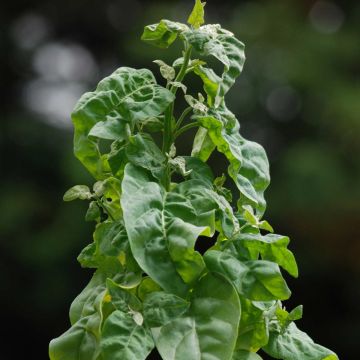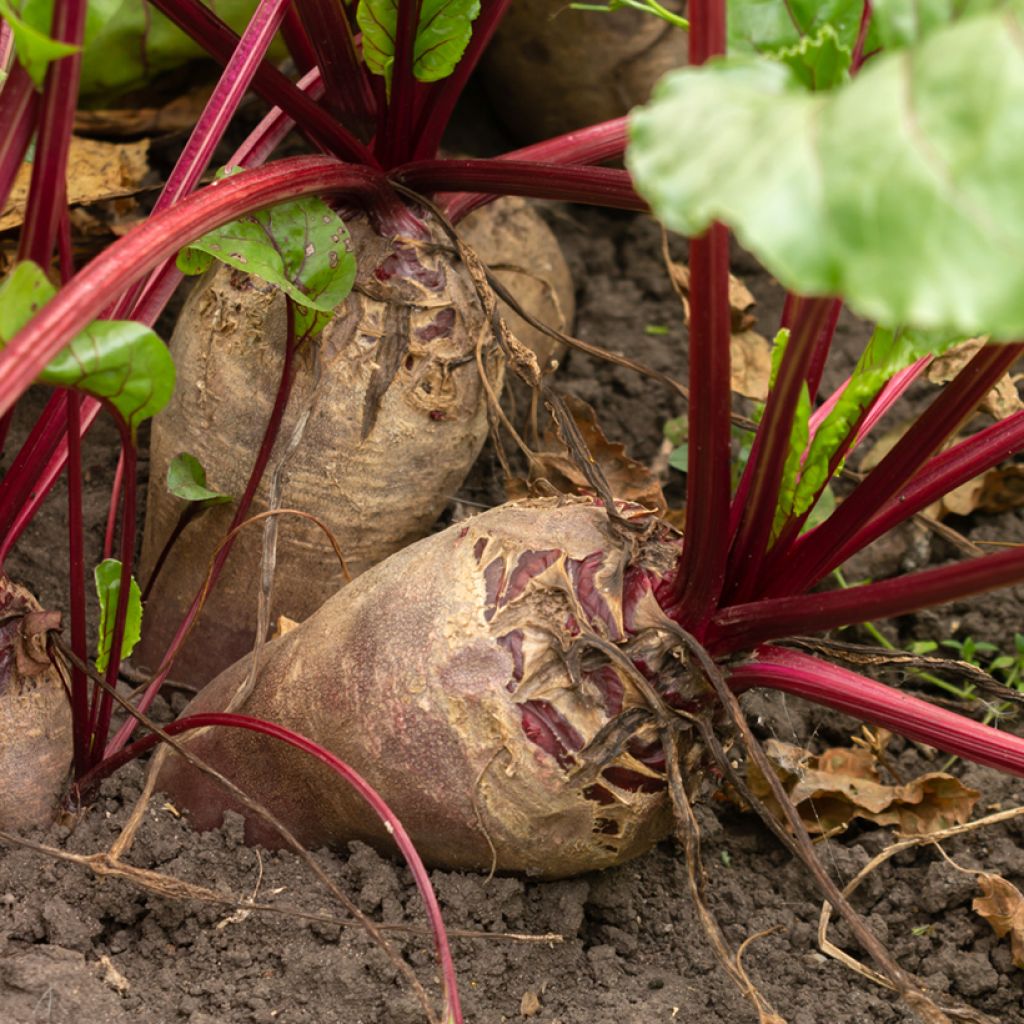

Beet - Beta vulgaris
Beet - Beta vulgaris
Beta vulgaris Crapaudine
Beet, Beetroot
This item cannot be shipped to the selected country
Dispatch by letter from €3.90
More information
Schedule delivery date,
and select date in basket
This plant carries a 6 months recovery warranty
More information
We guarantee the quality of our plants for a full growing cycle, and will replace at our expense any plant that fails to recover under normal climatic and planting conditions.
Seed-only orders are dispatched by sealed envelope. The delivery charge for seed-only orders is €3.90.

Description
The Crapaudine beetroot is a very old French variety, once shunned because of its wrinkled and cracked skin reminiscent of the amphibian of the same name. Today, it is being rediscovered by some chefs thanks to its very fine taste. This late variety is preferably sown in July for harvest in October-November.
Crapaudine is said to be the oldest existing variety of beetroot, with its origins dating back to around the year 1000. Its very tasty and particularly sweet flesh is recognisable by the concentric pink circles on a reddish-purple background. Cylindrical in shape, it measures on average 15 cm (6in) in length.
This root vegetable has better taste qualities when cooked in the oven.
The dark green leaves with garnet veins are delicious when prepared in a salad or cooked like spinach. Choose the young shoots when thinning, they will be more tender.
Beetroots are biennial root vegetables. The first year is devoted to the accumulation of nutrients in the root. The second year, the plant draws from this reserve to produce flowering and then seed formation. The edible root is harvested in the first year, but if you want to produce your own seeds, you will have to wait until the following year by reserving a few plants for this purpose. Sometimes called red carrot or red root, beetroot varieties differ in their colour: there are red, white, yellow, orange or pink ones, in cylindrical, spherical, oval shapes, etc. and in their carbohydrate content. They fall into three main categories:
- vegetable beetroots usually planted in gardens,
- sugar beetroots grown in open fields to extract sugar,
- and finally fodder beetroots intended for livestock but very tasty in human food.
Beetroot is not only a carbohydrate-rich food, but it is also renowned for its high content of vitamins and minerals, particularly potassium.
Storage: once the beetroots are harvested, they should be left to dry for a full day on the ground. To keep them throughout the winter, it is advisable to store them in a cool and dark place such as a cellar or pantry. To optimise storage and preserve the best taste qualities, you can bury them under a layer of dry sand.
Gardener's tip: beetroots should be planted in full sunlight but also kept in damp soil. To maintain these two conditions, consider mulching around the plants.
Report an error about the product description
Harvest
Plant habit
Foliage
Botanical data
Beta
vulgaris
Crapaudine
Chenopodiaceae
Beet, Beetroot
Mediterranean
Biennial
Other Beetroot seeds
Planting and care
In early cultivation: seeds will be sown from late February to April, in holes in plugs. The seeds are assembled in glomerules so that several plants will emerge. Transplanting is generally done when the first sowings take place, that is, in April. When the seedlings reach 10 cm (4in) and/or five leaves, they will be positioned in open ground, spacing them 20 to 25 cm (8 to 10in) apart and selecting the strongest ones. This method allows for harvesting from May to July.
In seasonal cultivation: sow from mid-April to July directly in open ground. Beets like damp and loose soil. Start by loosening the soil with a rake. Add some ash if necessary, as beets require a lot of potash. Then add well-decomposed manure or compost to the furrows. Once the seedlings reach 10 cm (4in) and/or five leaves, thin them out, spacing them 20 to 25 cm (8 to 10in) apart. If you choose multiple rows of beets, space them 20 to 25 cm (8 to 10in) apart, selecting the strongest ones. Harvesting takes place from July to October.
Cultivation: water regularly during hot and dry weather to prevent the root from lignifying. Beets do not associate well with leeks. However, they can be successfully planted with lettuces, onions, or radishes. Beets are hardy and very resistant to diseases.
Harvesting: in spring, during thinning, keep the young leaves to consume in mixed salads. Otherwise, with an April planting, you will obtain your first beets as early as July. Harvesting will continue until October for July sowings.
Seedlings
Care
Intended location
-
, onOrder confirmed
Reply from on Promesse de fleurs
Vegetable seeds
Haven't found what you were looking for?
Hardiness is the lowest winter temperature a plant can endure without suffering serious damage or even dying. However, hardiness is affected by location (a sheltered area, such as a patio), protection (winter cover) and soil type (hardiness is improved by well-drained soil).

Photo Sharing Terms & Conditions
In order to encourage gardeners to interact and share their experiences, Promesse de fleurs offers various media enabling content to be uploaded onto its Site - in particular via the ‘Photo sharing’ module.
The User agrees to refrain from:
- Posting any content that is illegal, prejudicial, insulting, racist, inciteful to hatred, revisionist, contrary to public decency, that infringes on privacy or on the privacy rights of third parties, in particular the publicity rights of persons and goods, intellectual property rights, or the right to privacy.
- Submitting content on behalf of a third party;
- Impersonate the identity of a third party and/or publish any personal information about a third party;
In general, the User undertakes to refrain from any unethical behaviour.
All Content (in particular text, comments, files, images, photos, videos, creative works, etc.), which may be subject to property or intellectual property rights, image or other private rights, shall remain the property of the User, subject to the limited rights granted by the terms of the licence granted by Promesse de fleurs as stated below. Users are at liberty to publish or not to publish such Content on the Site, notably via the ‘Photo Sharing’ facility, and accept that this Content shall be made public and freely accessible, notably on the Internet.
Users further acknowledge, undertake to have ,and guarantee that they hold all necessary rights and permissions to publish such material on the Site, in particular with regard to the legislation in force pertaining to any privacy, property, intellectual property, image, or contractual rights, or rights of any other nature. By publishing such Content on the Site, Users acknowledge accepting full liability as publishers of the Content within the meaning of the law, and grant Promesse de fleurs, free of charge, an inclusive, worldwide licence for the said Content for the entire duration of its publication, including all reproduction, representation, up/downloading, displaying, performing, transmission, and storage rights.
Users also grant permission for their name to be linked to the Content and accept that this link may not always be made available.
By engaging in posting material, Users consent to their Content becoming automatically accessible on the Internet, in particular on other sites and/or blogs and/or web pages of the Promesse de fleurs site, including in particular social pages and the Promesse de fleurs catalogue.
Users may secure the removal of entrusted content free of charge by issuing a simple request via our contact form.
The flowering period indicated on our website applies to countries and regions located in USDA zone 8 (France, the United Kingdom, Ireland, the Netherlands, etc.)
It will vary according to where you live:
- In zones 9 to 10 (Italy, Spain, Greece, etc.), flowering will occur about 2 to 4 weeks earlier.
- In zones 6 to 7 (Germany, Poland, Slovenia, and lower mountainous regions), flowering will be delayed by 2 to 3 weeks.
- In zone 5 (Central Europe, Scandinavia), blooming will be delayed by 3 to 5 weeks.
In temperate climates, pruning of spring-flowering shrubs (forsythia, spireas, etc.) should be done just after flowering.
Pruning of summer-flowering shrubs (Indian Lilac, Perovskia, etc.) can be done in winter or spring.
In cold regions as well as with frost-sensitive plants, avoid pruning too early when severe frosts may still occur.
The planting period indicated on our website applies to countries and regions located in USDA zone 8 (France, United Kingdom, Ireland, Netherlands).
It will vary according to where you live:
- In Mediterranean zones (Marseille, Madrid, Milan, etc.), autumn and winter are the best planting periods.
- In continental zones (Strasbourg, Munich, Vienna, etc.), delay planting by 2 to 3 weeks in spring and bring it forward by 2 to 4 weeks in autumn.
- In mountainous regions (the Alps, Pyrenees, Carpathians, etc.), it is best to plant in late spring (May-June) or late summer (August-September).
The harvesting period indicated on our website applies to countries and regions in USDA zone 8 (France, England, Ireland, the Netherlands).
In colder areas (Scandinavia, Poland, Austria...) fruit and vegetable harvests are likely to be delayed by 3-4 weeks.
In warmer areas (Italy, Spain, Greece, etc.), harvesting will probably take place earlier, depending on weather conditions.
The sowing periods indicated on our website apply to countries and regions within USDA Zone 8 (France, UK, Ireland, Netherlands).
In colder areas (Scandinavia, Poland, Austria...), delay any outdoor sowing by 3-4 weeks, or sow under glass.
In warmer climes (Italy, Spain, Greece, etc.), bring outdoor sowing forward by a few weeks.

































